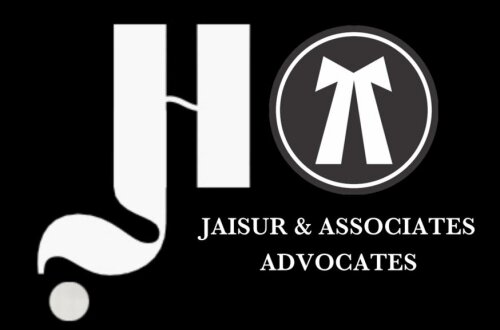Best Defamation Lawyers in India
Share your needs with us, get contacted by law firms.
Free. Takes 2 min.
Or refine your search by selecting a city:
List of the best lawyers in India
About Defamation Law in India
Defamation in India is governed by a complex set of statutes and case law. It refers to the act of harming another person's reputation through false or misleading statements. Indian law classifies defamation into two categories: civil and criminal. Under civil law, defamation is covered by the Law of Torts, which allows the affected party to claim damages. In contrast, criminal defamation is defined under Sections 499 and 500 of the Indian Penal Code, where false statements can lead to imprisonment or a monetary fine.
Why You May Need a Lawyer
You may need legal assistance in defamation cases for several reasons:
- Filing a Defamation Suit: If you believe someone has made false statements that harmed your reputation, a lawyer can help you navigate the process of filing a civil or criminal defamation suit.
- Defense Against Allegations: If you've been accused of defamation, legal counsel can help defend your case, arguing against the claim or negotiating settlements.
- Understanding Complex Laws: The intricacies of defamation law require specialized knowledge, so a lawyer can ensure compliance with legal procedures and documentation.
- Evaluating Damages: Lawyers can provide an assessment of potential damages based on the defamation's impact, ensuring adequate compensation or minimal liability.
- Mediation and Settlement: Engaging an attorney can facilitate negotiation and mediation, potentially avoiding lengthy court battles.
Local Laws Overview
Indian defamation laws are primarily codified under the Indian Penal Code, 1860, and various high court rulings. Key aspects include:
- Section 499 of IPC: Defines defamation and outlines exceptions, like expressions in good faith for public good or truth.
- Section 500 of IPC: Prescribes punishment for defamation, which can include imprisonment for up to two years, a fine, or both.
- Burden of Proof: Lies on the complainant to establish that the accused published or spoke defamatory words.
- Right to Free Speech: Defamation laws must balance individual reputation with Article 19 of the Constitution, which guarantees freedom of speech.
- Civil Remedies: In addition to criminal charges, victims can file civil suits for damages under tort law.
Frequently Asked Questions
What constitutes defamation in India?
Defamation involves making false statements about someone that harm their reputation. It includes both written (libel) and spoken (slander) statements.
What are the defenses available in a defamation case?
Common defenses include truth, statements made in good faith, fair comment on matters of public interest, and privilege under specific circumstances.
Can corporations be defamed?
Yes, companies can file defamation suits if false statements impact their business reputation or cause financial harm.
Is truth always a defense in defamation cases?
While truth is a defense for civil defamation, in criminal cases, the statements must be true and made for the public good to qualify as a defense.
How long do defamation cases usually take?
The duration varies significantly based on circumstances. While some cases may resolve in months, others can extend over several years.
Are online statements treated differently under defamation law?
Defamatory statements made online are treated similarly to offline defamation, with legal processes adapting to consider digital evidence.
What is the limitation period for filing a defamation suit?
The limitation period typically extends to one year from the date of the defamatory act.
Does an apology prevent defamation actions?
An apology may mitigate damage claims but does not inherently prevent legal action. It can be part of settlement negotiations.
How can I prove damage in a defamation case?
Providing evidence of financial loss, social ostracism, or a decline in professional opportunities can help establish damage.
Are there any alternatives to litigation in defamation disputes?
Mediation and arbitration can serve as alternatives to litigation, offering privately negotiated settlements without court intervention.
Additional Resources
Consider exploring these resources and organizations for more information about defamation laws in India:
- Law Commission of India reports on Defamation
- Indian Bar Association
- Human Rights Law Network (HRLN)
- Local Legal Aid Services Authorities
- Government publications on Freedom of Speech and Defamation
Next Steps
If you require legal assistance for a defamation issue, consider the following steps:
- Consult a Lawyer: Engage an attorney specializing in defamation to discuss the specifics of your case.
- Gather Evidence: Collect any relevant documents, communications, or testimonials that support your position.
- Consider Mediation: Assess whether alternative dispute resolution might be appropriate before pursuing litigation.
- File a Complaint: If necessary, initiate legal proceedings by filing a complaint or suit in the appropriate court.
- Stay Informed: Keep abreast of updates in defamation law by consulting legal practitioners and reviewing current legal resources.
Lawzana helps you find the best lawyers and law firms in India through a curated and pre-screened list of qualified legal professionals. Our platform offers rankings and detailed profiles of attorneys and law firms, allowing you to compare based on practice areas, including Defamation, experience, and client feedback.
Each profile includes a description of the firm's areas of practice, client reviews, team members and partners, year of establishment, spoken languages, office locations, contact information, social media presence, and any published articles or resources. Most firms on our platform speak English and are experienced in both local and international legal matters.
Get a quote from top-rated law firms in India — quickly, securely, and without unnecessary hassle.
Disclaimer:
The information provided on this page is for general informational purposes only and does not constitute legal advice. While we strive to ensure the accuracy and relevance of the content, legal information may change over time, and interpretations of the law can vary. You should always consult with a qualified legal professional for advice specific to your situation.
We disclaim all liability for actions taken or not taken based on the content of this page. If you believe any information is incorrect or outdated, please contact us, and we will review and update it where appropriate.
Browse defamation law firms by city in India
Refine your search by selecting a city.













